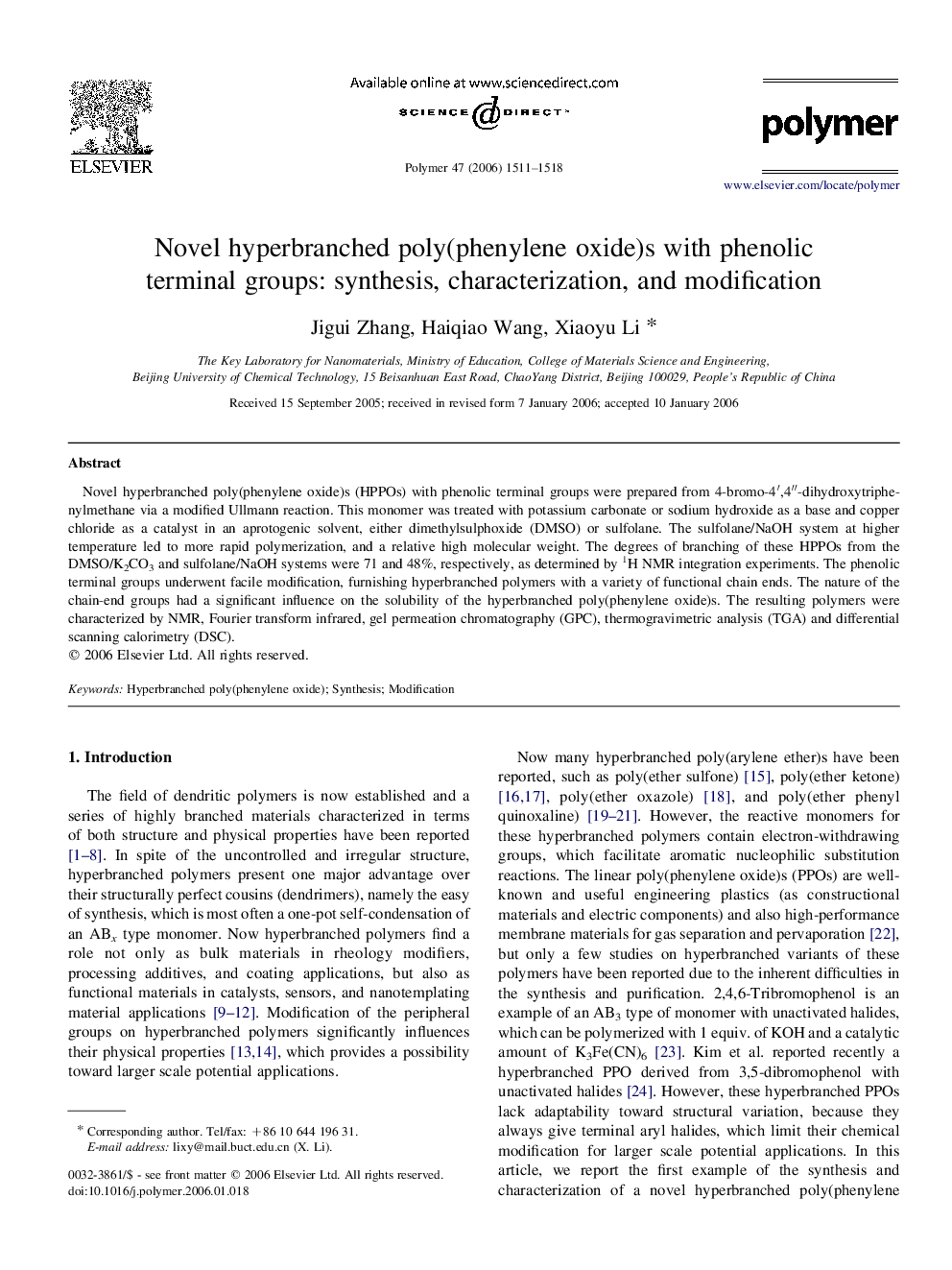| Article ID | Journal | Published Year | Pages | File Type |
|---|---|---|---|---|
| 5189190 | Polymer | 2006 | 8 Pages |
Abstract
Novel hyperbranched poly(phenylene oxide)s (HPPOs) with phenolic terminal groups were prepared from 4-bromo-4â²,4â³-dihydroxytriphenylmethane via a modified Ullmann reaction. This monomer was treated with potassium carbonate or sodium hydroxide as a base and copper chloride as a catalyst in an aprotogenic solvent, either dimethylsulphoxide (DMSO) or sulfolane. The sulfolane/NaOH system at higher temperature led to more rapid polymerization, and a relative high molecular weight. The degrees of branching of these HPPOs from the DMSO/K2CO3 and sulfolane/NaOH systems were 71 and 48%, respectively, as determined by 1H NMR integration experiments. The phenolic terminal groups underwent facile modification, furnishing hyperbranched polymers with a variety of functional chain ends. The nature of the chain-end groups had a significant influence on the solubility of the hyperbranched poly(phenylene oxide)s. The resulting polymers were characterized by NMR, Fourier transform infrared, gel permeation chromatography (GPC), thermogravimetric analysis (TGA) and differential scanning calorimetry (DSC).
Keywords
Related Topics
Physical Sciences and Engineering
Chemistry
Organic Chemistry
Authors
Jigui Zhang, Haiqiao Wang, Xiaoyu Li,
